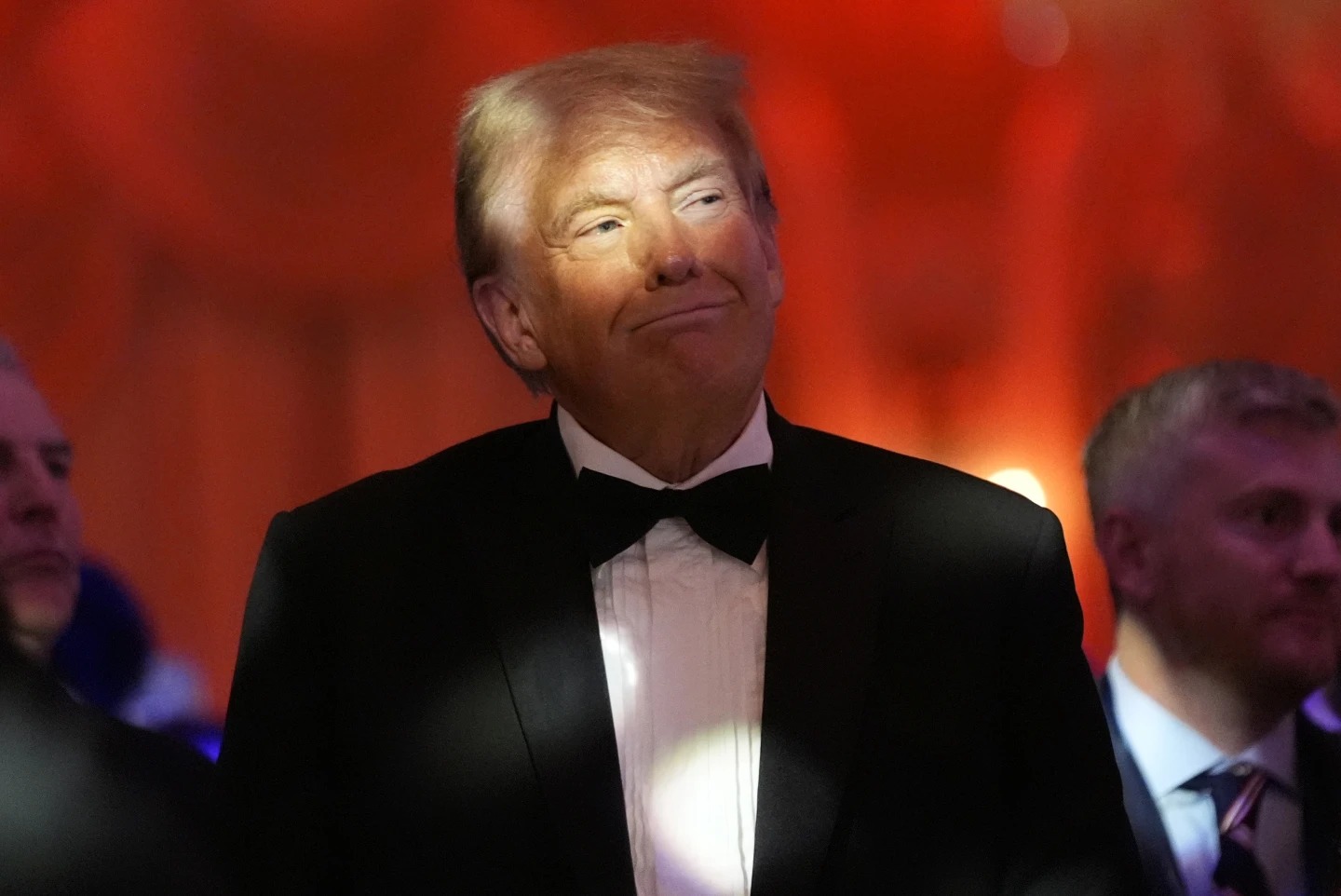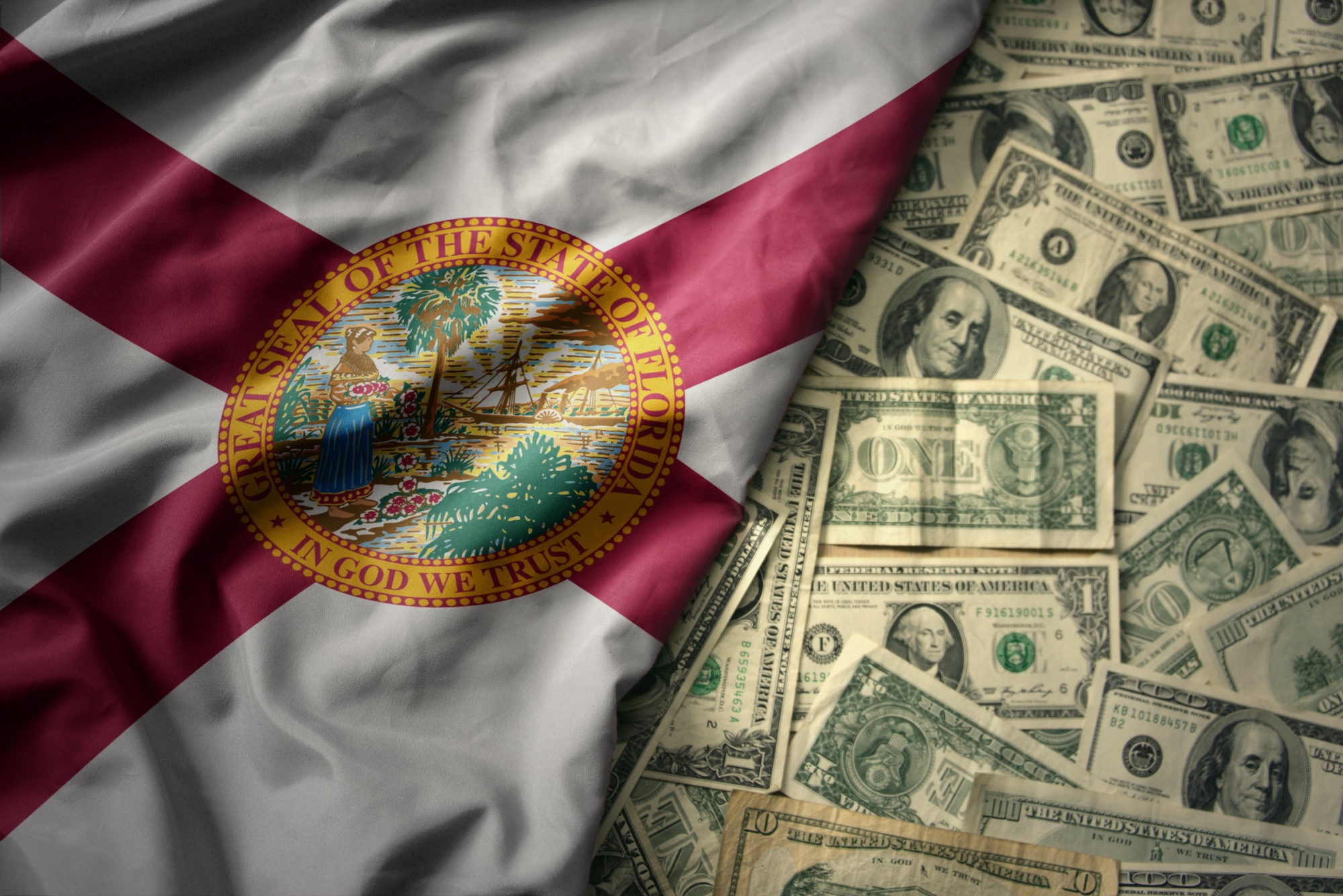President Donald Trump on Saturday signed an order to impose stiff tariffs on imports from Mexico, Canada and China, drawing swift retaliation and an undeniable sense of betrayal from the country’s North American neighbors as a trade war erupted among the longtime allies.
The Republican president posted on social media that the tariffs were necessary “to protect Americans,” pressing the three nations to do more to curb the manufacture and export of illicit fentanyl and for Canada and Mexico to reduce illegal immigration into the U.S.
The tariffs, if sustained, could cause inflation to significantly worsen, threatening the trust that many voters placed in Trump to lower the prices of groceries, gasoline, housing, autos and other goods as he promised. They also risked throwing the global economy and Trump’s political mandate into turmoil just two weeks into his second term.
Trump declared an economic emergency in order to place duties of 10% on all imports from China and 25% on imports from Mexico and Canada. Energy imported from Canada, including oil, natural gas and electricity, would be taxed at a 10% rate. Trump’s order includes a mechanism to escalate the rates charged by the U.S. against retaliation by the other countries, raising the specter of an even more severe economic disruption.
“The actions taken today by the White House split us apart instead of bringing us together,” Canadian Prime Minister Justin Trudeau said in a somber tone as he announced that his country would put matching 25% tariffs on up to $155 billion in U.S. imports, including alcohol and fruit.
He channeled the betrayal that many Canadians are feeling, reminding Americans that Canadian troops fought alongside them in Afghanistan and helped respond to myriad crises from wildfires in California to Hurricane Katrina.
“We were always there standing with you, grieving with you, the American people,” he said.
Mexico’s president also ordered retaliatory tariffs.
“We categorically reject the White House’s slander that the Mexican government has alliances with criminal organizations, as well as any intention of meddling in our territory,” Mexican President Claudia Sheinbaum wrote in a post on X while saying she had instructed her economy secretary to implement a response that includes retaliatory tariffs and other measures in defense of Mexico’s interests.
“If the United States government and its agencies wanted to address the serious fentanyl consumption in their country, they could fight the sale of drugs on the streets of their major cities, which they don’t do and the laundering of money that this illegal activity generates that has done so much harm to its population.”
The premier of the Canadian province of British Columbia, David Eby, specifically called on residents to stop buying liquor from U.S. “red” states and said it was removing American alcohol brands from government store shelves as a response to the tariffs.
China’s Ministry of Foreign Affairs said the country’s government “firmly deplores and opposes this move and will take necessary countermeasures to defend its legitimate rights and interests.”
China began regulating fentanyl-related drugs as a class of controlled substances in 2019 and conducted “counternarcotics cooperation with the U.S.,” the ministry said, calling on the U.S. government to correct what it considers wrongful actions.
The Ministry of Commerce in China said it would file a lawsuit with the World Trade Organization for the “wrongful practices of the U.S.” and take measures to safeguard its rights and interests.
The tariffs will go into effect on Tuesday, setting up a showdown in North America that could potentially sabotage economic growth. A new analysis by the Budget Lab at Yale laid out the possible damage to the U.S. economy, saying the average household would lose the equivalent of $1,170 in income from the taxes. Economic growth would slow and inflation would worsen, and the situation could be even worse with retaliation from other countries.
Democrats were quick to warn that any inflation going forward was the result of Trump’s actions.
“You’re worried about grocery prices. Don’s raising prices with his tariffs,” Senate Democratic leader Chuck Schumer of New York wrote in a series of posts on X. “You’re worried about tomato prices. Wait till Trump’s Mexico tariffs raise your tomato prices,” read another. “You’re worried about car prices. Wait till Trump’s Canada tariffs raise your car prices,” read another.
A senior U.S. administration official, speaking on condition of anonymity to brief reporters, said the lower rate on energy reflected a desire to minimize disruptive increases on the price of gasoline or utilities. That’s a sign White House officials understand the gamble they’re taking on inflation. Price spikes under former President Joe Biden led to voter frustration that helped return Trump to the White House.
The order signed by Trump contained no mechanism for granting exceptions, the official said, a possible blow to homebuilders who rely on Canadian lumber as well as farmers, automakers and other industries.
The official did not provide specific benchmarks that could be met to lift the new tariffs, saying only that the best measure would be fewer Americans dying from fentanyl addiction.
The order would also allow for tariffs on Canadian imports of less than $800. Imports below that sum are currently able to cross into the United States without customs and duties.
“It doesn’t make much economic sense,’’ said William Reinsch, senior adviser at the Center for Strategic and International Studies and a former U.S. trade official. “Historically, most of our tariffs on raw materials have been low because we want to get cheaper materials so our manufacturers will be competitive … Now, what’s he talking about? He’s talking about tariffs on raw materials. I don’t get the economics of it.’’
With the tariffs, Trump is honoring promises that are at the core of his economic and national security philosophy. But the announcement showed his seriousness around the issue as some Trump allies had played down the threat of higher import taxes as mere negotiating tactics.
The president is preparing more import taxes in a sign that tariffs will be an ongoing part of his second term. On Friday, he mentioned imported computer chips, steel, oil and natural gas, as well as copper, pharmaceutical drugs and imports from the European Union — moves that could essentially pit the U.S. against much of the global economy.
Trudeau warned of economic pain as the tariffs take effect and encouraged Canadians to “choose Canadian products and services rather than American ones.” But he also voiced optimism in the enduring relationship between the two countries.
“It is going to have real consequences for people, for workers on both sides of our border. We don’t want to be here. We didn’t ask for this, but we will not back down in standing up both for Canadians and for the incredible successful relationship between Canada and the United States,” Trudeau said.
___
Republished with permission of The Associated Press.
Post Views: 0

 Entertainment8 years ago
Entertainment8 years ago
 Entertainment8 years ago
Entertainment8 years ago
 Politics8 years ago
Politics8 years ago
 Tech8 years ago
Tech8 years ago
 Tech8 years ago
Tech8 years ago
 Tech8 years ago
Tech8 years ago
 Politics8 years ago
Politics8 years ago
 Tech8 years ago
Tech8 years ago








